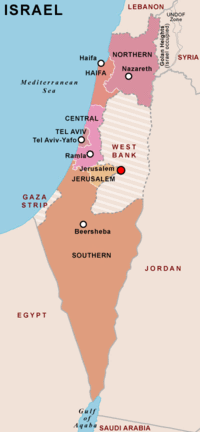Think of this as Volume 18, Number 30 of the newsletter I have written weekly since March, 1997. Enjoy.

It's not a fair fight. Short-term goals always win such a battle. That's why extremist religions defeat more peaceful ones, even though peace is what every religion proclaims. That's why extreme political rhetoric is always used by a party seeking support. That's why doom-and-gloom economic newsletters always sell, even though collapses are very rare.
In the long run we're all dead. In the short run we're all manipulable.
Here's another problem. Those who oppose the lines, or who seek to extend policies across lines, tend to be mild-mannered. President Obama never seems to really get angry, and that's considered a weakness. Those who traffic in anger exploit it relentlessly, squeezing the center, expanding the left and the right.
Both leftists and rightists act, politically, in favor of lines. Those on the left protest international agreements they say will limit democracy or liberty. Those on the right protest internationalism as a matter of course. Both see this as a fight for autonomy, for individualism against the “collective.”
But we're all in a collective. Our churches are collective. Our families are collective. Our businesses are collective. For anyone to claim they're “anti-collectivist” who owns a business, attends a church and has a family is ridiculous.
The question is whether our collectives are also part of a collective, whether there is some urgency in cooperating across these very tiny lines that mark our lives.

So what do we mean by being “anti-collectivist?”

A nation, regardless of how it's governed, is the ultimate collective alliance. Everyone on the inside is deemed an ally, whether willing or unwilling. Everyone outside is deemed an adversary, to some degree. There are values and norms held in common, and nations that don't respect these norms can be deemed an enemy.
While there is a collective will within each nation, there are very few collectives that exist between and among nations. Only those whose self-interest rises about the need for a collective are exempt from national demands.

That's because, by concentrating their energy on one or a few nations, by feigning alliance, those who are stateless create special protections, for their own interests, against those of other nations, even their own.
Take the present controversy over “tax inversions.” American corporations are emigrating to Ireland in droves, because it has a lower corporate tax rate than America does. Business analysts say the answer is for America to lower its own corporate tax rate, but what good would that do – some other nation would just drop their own rate below that rate. It's a race to the bottom.
The only practical solution is to lock every corporation into paying taxes where they do business. Pay French taxes for business done in France, American taxes for business done in America, and Irish taxes only on business done in Ireland. Don't forbid the transfer of money for accounting purposes, simply refuse to account for it.
But that can only be done through an international treaty. Why should Ireland cooperate in such an effort, when it's manifestly against its own interests? Why should any nation that benefits from an alliance with the ultra-wealthy risk that benefit on behalf of a larger collective interest?

What is the difference between these actors and those of an international drug cartel? Nothing, except this. A general collective refusal by nations to surrender to cartels, which leaves drug lords mostly isolated in their movements, unable to fully participate in either political or economic life by universal revulsion. And a tolerance of these other actors.
How do we create the kind of revulsion against line jumpers we have for international drug lords? How do we then enforce that revulsion and bring the line jumpers within the rule of law? That, to me, is the chief political challenge of our time.










